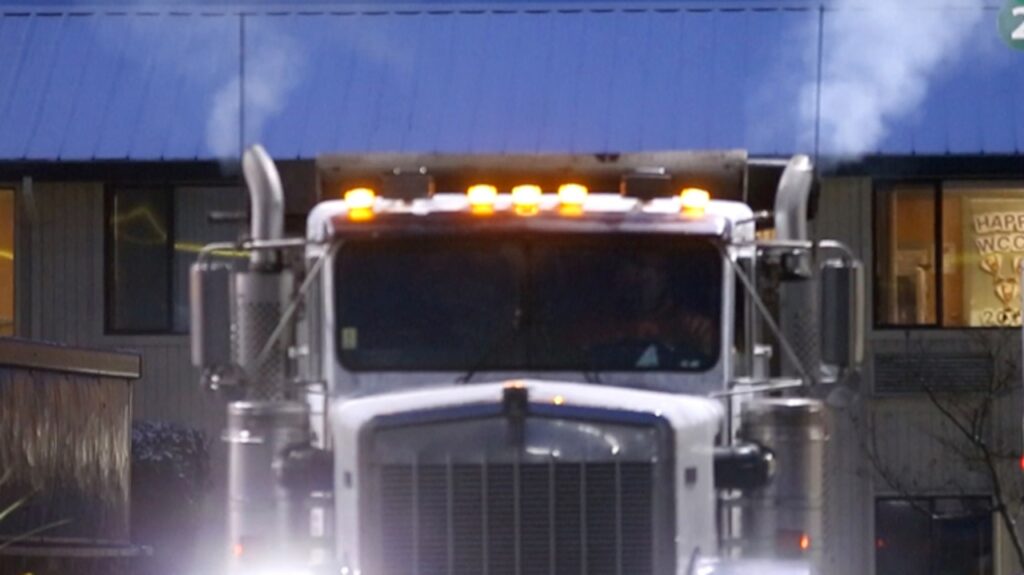Lawmakers in Trenton were given a choice last week: Either protect the environment and the health of the people they serve, or capitulate to campaign-friendly industries. They decided to further poison the lungs of countless kids and other vulnerable New Jerseyans.
The state is in the process of electrifying the massive truck fleet that rumbles across its highways and through its streets – more than 423,000 on any given day – but an Assembly committee tried to hit the brakes on that transition Thursday, a morally polluted overreaction to the wails of truck dealers who decry higher costs and a dangerous retreat from our state’s climate goals.
That danger is growing, given Donald Trump’s plans to withdraw from global climate agreements, wreck offshore wind development, rescind tax credits for electric cars, allow fossil fuel companies drill at will, neuter the EPA, and use Congress to gut the Inflation Reduction Act.
That puts the onus on state governments to contain the damage, and that’s why the retreat on truck emissions is so galling. New Jersey is already dawdling in the effort to turn its transportation sector into something that won’t melt the planet and choke our children by cutting subsidies for electric cars and applying fees for new EVs. The last thing the state needs now is a gaggle of environmental vandals posing as legislators.
Because of our terrible air, the state adopted new emission guidelines for trucks called the Advanced Clean Trucks standard, which requires manufacturers to deliver a gradually increasing supply of new battery-powered trucks and buses to our state, with implementation scheduled for Jan. 1, 2025. Eleven other states follow these guidelines.
But the Assembly Transportation Committee, after getting pushback from a trucking industry that insists the rollout is too soon, advanced a bill that would delay these rules until 2027. Perhaps the most infuriating part is they didn’t attempt to get all the facts required before stonewalling this program, as they didn’t even invite Commissioner Shawn LaTourette of the Department of Environmental Protection to explain the consequences of delays to them.
So we asked him to do it here: “There has never been a direct request to DEP to delay implementation, and there’s good reason for that: A delay is actually built into the rule itself, a three-year compliance flexibility,” LaTourette explained. “That means if a manufacturer does not sell its quota of electric medium- and heavy-duty trucks in the market in 2025, they have 2026 and 2027 to make up for it. They totally missed the point in this conversation.”
The tragedy, of course, is their indifference to the damage of truck emissions in a state that gets an F-rating from the American Lung Association. On this issue, LaTourette is blunt: “This is the way we can clean the air for our kids, who experience harm just sitting on a diesel bus or standing in a community where heavy-duty emissions flow,” he said. “So you have to ask: What do we value? I think it should be kids over trucks, quite honestly.”
Countless reports show that the damage from inaction would be ineluctable. In its six-state study entitled “Trucking Industry Disinformation Will Cost Lives,” the venerable Union of Concerned Scientists found that if ACT standard is delayed until 2027 as the bill proposes, New Jersey could have $373 million in extra healthcare costs, and 24 additional premature deaths.
The 13 members of the Democrat-dominated committee, however, were inattentive to such details during its three-hour hearing.
One member is from Hudson County, which has orange or red alert days that number in the dozens each year, largely because the Turnpike and Rts. 440, 9, and 280 run through the three towns (Bayonne, Jersey City, Kearny) in her legislative district.
Another member is from South Bergen County – where they earn an F-rating for ozone – who recently posted a YouTube video in which he squeals with risible hypocrisy, “I will not pollute our children’s future!”
We already have an air pollution crisis in New Jersey. As Doug O’Malley of Environment New Jersey told the committee, the cost of diesel air pollution was $3.8 billion in 2023, and led to the deaths of 300 residents. The truck rule does not eliminate diesels entirely, but any delay in the electric ramp-up would, as LaTourette warns, “create a very reasonable concern that this momentum could be lost. One delay could turn into a forever delay.”
The bill has some distance to go, but leadership in Trenton should kill it now, because the danger, stress, and despair of living in diesel death zones rise every day. Our lawmakers need to wake up and smell the toxic fumes.
To comment on this Star-Ledger editorial, send a letter to eletters@starledger.com.
Our journalism needs your support. Please subscribe today to NJ.com.
Bookmark NJ.com/Opinion. Follow on Twitter @NJ_Opinion and find NJ.com Opinion on Facebook.

